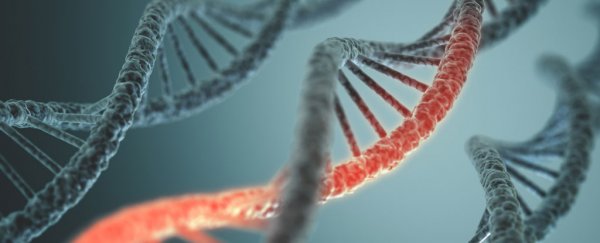A 10-year effort to identify the genes responsible for ageing has led to researchers finding 238 specific genes that, when removed, significantly extend the lifespan of yeast cells in laboratory testing.
If the results of this genetic editing can be replicated in humans – which is a possibility, since many of the genes and genetic pathways involved are also found in higher life forms – we may be able to seriously boost human lifespans by turning off ageing processes. The researchers found that the life of yeast could be extended by as much as 60 percent in some circumstances.
"This study looks at ageing in the context of the whole genome and gives us a more complete picture of what ageing is," said Brian Kennedy, president and CEO of the Buck Institute for Research on Ageing in the US and lead author of the study. "It also sets up a framework to define the entire network that influences ageing in this organism."
Together with researchers from the University of Washington, the Buck Institute laboriously examined the development of some 4,698 separate yeast strains, each featuring a single gene deletion. The researchers counted cells in each strain to track their respective replicative lifespan, monitoring how many daughter cells the mother cells could ultimately produce by cell division.
"We had a small needle attached to a microscope, and we used that needle to tease out the daughter cells away from the mother every time it divided and then count how many times the mother cells divides," said Kennedy. "We had several microscopes running all the time."
The process may have been excruciatingly delicate/time-consuming or something else, but it yielded results. The researchers identified 238 genes responsible for ageing in yeast, which when removed, extend the lifespan of individual strains. While scientists already knew a minority amongst these genes affected ageing, it's the first time 189 of the others been linked to ageing processes, giving us the most comprehensive view yet of what the researchers call the "conserved mechanisms of ageing" in yeast.
While the duration of yeast lifespans might not ordinarily keep you up at night, there are a few reasons why perhaps it should. From a genetic perspective at least, the ingredient that helps make bread rise (and beer so compelling) shares more than a few things in common with you and me.
"Almost half of the genes we found that affect ageing are conserved in mammals," said Kennedy. "In theory, any of these factors could be therapeutic targets to extend healthspan. What we have to do now is figure out which ones are amenable to targeting."
The theoretical applications for combating ageing in people could be huge, provided researchers can indeed figure out which genomic targets are amenable to alteration.
Especially when you consider how effective some of the gene deletions were. In the most stunning result of the study, which is published in Cell Metabolism, researchers found that removing a particular gene called LOS1 extended the life of the yeast by 60 percent.
LOS1 is involved in the process of building proteins, but it's also related to separate genes respectively concerned with caloric restriction and DNA damage control.
"Calorie restriction has been known to extend lifespan for a long time," said Kennedy. "The DNA damage response is linked to ageing as well. LOS1 may be connecting these different processes."
